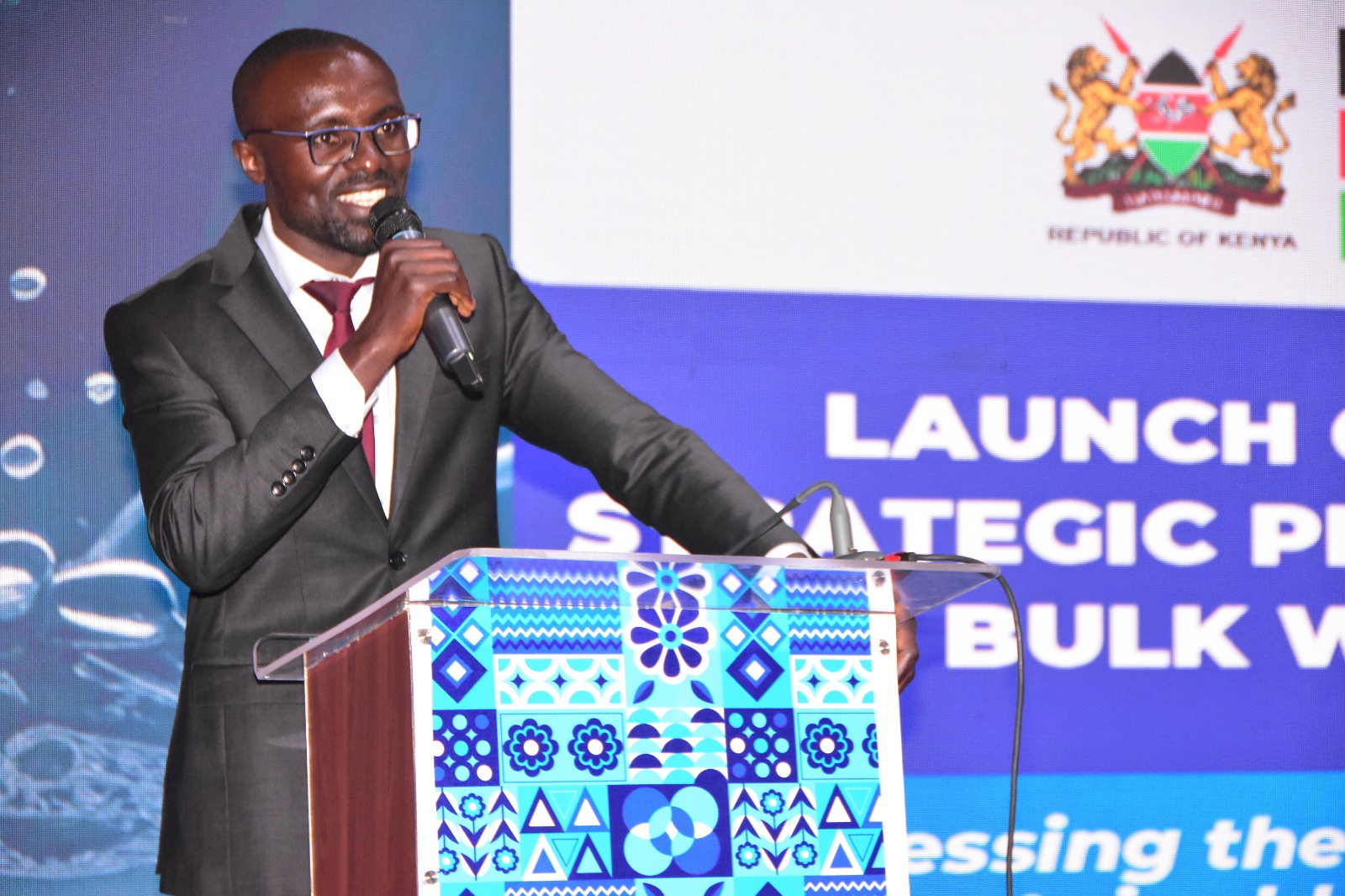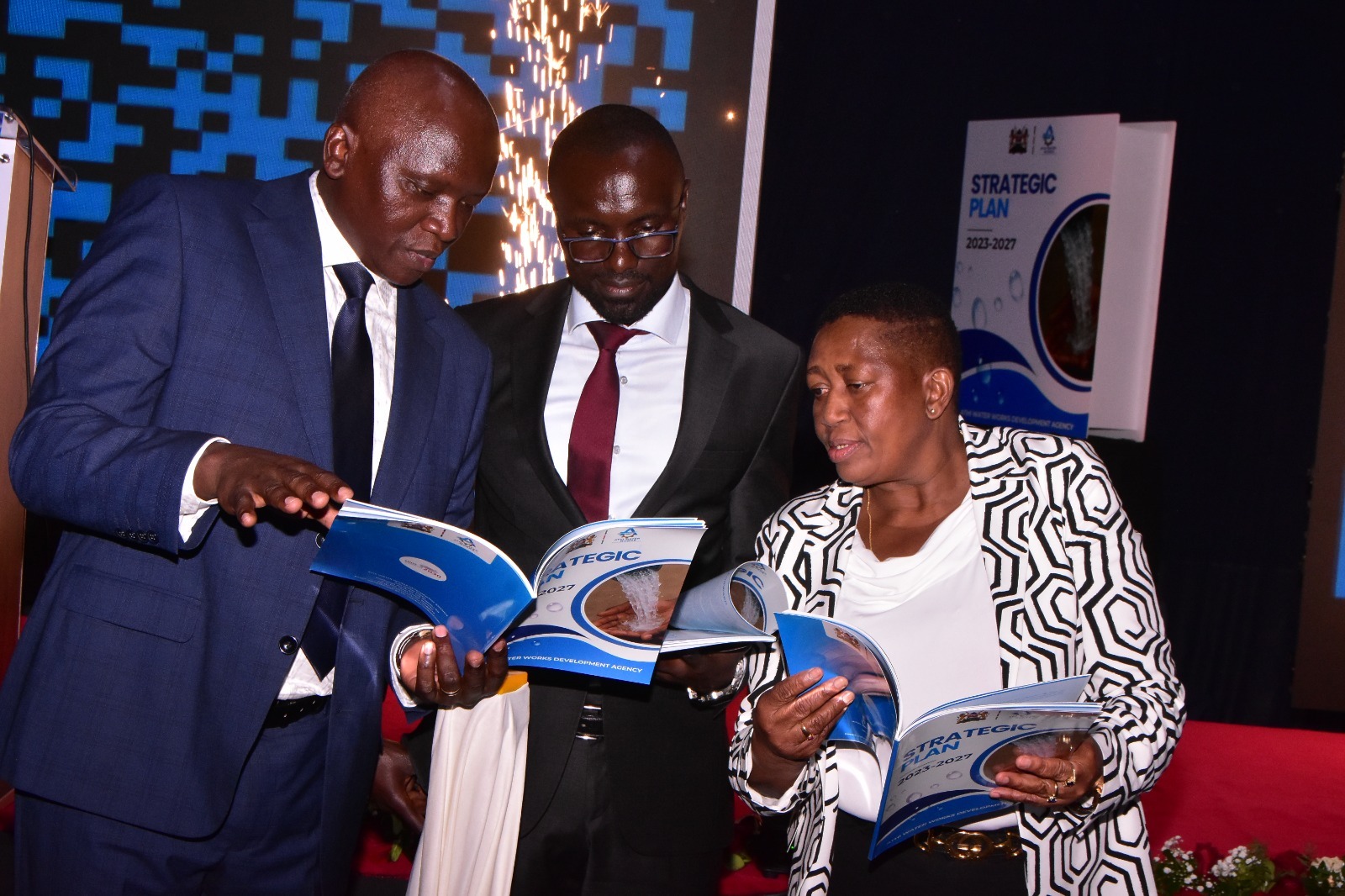

The Athi Water Works Development Agency (AWWDA) has launched its 2024–2029 Strategic Plan, marking the start of flagship water and sanitation projects expected to transform water access in Nairobi, Kiambu, Murang’a, and surrounding regions.
At the heart of the five-year plan are large-scale initiatives, including the Thiririka Dam Water Supply Project, Maragua 4 Dam, Northern Collector Tunnel II, and the Nairobi Satellite Towns Water and Sanitation Improvement Project (NATWASIP).
Together, these projects will deliver new water sources with a combined daily storage capacity of 461,000 cubic meters.
They will also raise treatment capacity to 318,500 cubic meters per day, lay more than 443 km of transmission pipelines, and build 880 km of sewer networks.
The interventions will close the growing supply-demand gap, ensuring millions in both urban and peri-urban areas gain reliable access to safe water and sanitation.
The plan is expected to significantly reduce waterborne diseases, improve public health, enhance household productivity, and unlock opportunities for industries and businesses that depend on a consistent water supply.

In his keynote address during the launch at KICC Nairobi, Cabinet Secretary for Water, Sanitation and Irrigation, Eng. Eric Murithi Mugaa, hailed the strategic plan as a bold step towards Kenya’s long-term development goals.
“These projects bring us closer to universal water and sanitation coverage by 2030, in line with Vision 2030 and the Bottom-Up Economic Transformation Agenda. The socio-economic benefits—healthier families, thriving businesses, and stronger local economies—cannot be overstated,” he said.
Eng. Joseph Kamau, Chief Executive Officer of AWWDA, emphasized that the strategic plan places access to clean water at the center of socio-economic transformation.
“Water is not just about consumption; it underpins health, education, agriculture, and enterprise. By securing long-term supply, we are improving daily lives while creating a foundation for job creation, food security, industrial growth, and climate resilience. This plan is not just about dams and pipelines; it is about livelihoods and opportunities,” he said.
Kamau added that collaboration, digital innovation, and green energy solutions will help reimagine water and sanitation for the next generation.
The launch also marked the commissioning of bulk water operations through the Karimenu II Dam and Northern Collector Tunnel systems, now supplying more than 217 million litres of treated water daily to Nairobi and surrounding areas.
To enhance accountability, AWWDA signed a Service Level Agreement (SLA) with the Kenya Revenue Authority (KRA), which will oversee bulk water revenue collection.
Board Chairperson Mary Munga underscored the importance of governance in driving the agency’s mission.
“With rapid urbanization, climate change, and limited resources, we need bold responses. By embracing stronger partnerships and oversight, AWWDA is not just delivering infrastructure; it is delivering dignity, prosperity, and national cohesion through water,” she said.











